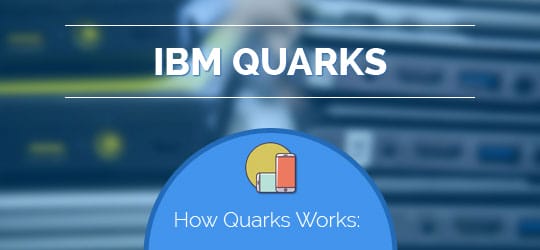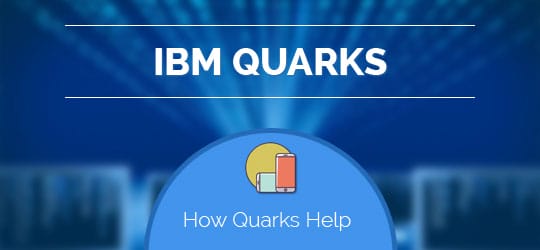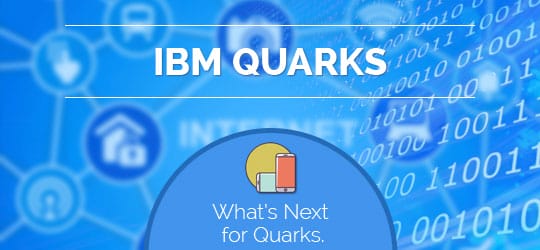IBM recently declared that they have developed an open-sourcing tool to develop IoT Apps named as Quarks. It is a modern world technology for the virtual world. It enables programmers and IT Agencies to workout on Internet of things (IoT) data on locally connected devices or gateways.
It is time taking and costly process to extract the values, data, and queries by transferring over a network and then analyzing it via a centralized application compared to the analysis at the edge.
While describing the Quarks technology, IBM said on a web page:
“Though, working in conjunction with centralized analytic systems, Quarks enables a common streaming analytic model across different kinds of devices using familiar tools, It runs locally analyzing the continuous streams of data coming from equipment, vehicles, systems, appliances, and sensors of all kinds.”
In the 21st century, IoT is the most attention-grabbing subject to talk about. Great IT companies like Windows, Google, Apple are working day and night to capture this technology because they know the future of this technology. In between this, IBM has come up with a latest open source tool to develop IoT Apps named Quarks (open source development tool for IoT).
IBM is very much confident with its future journey. International Business Machines believe, in next coming years “Quarks” will be one of the great open source development tools. It will assist programmers and agencies in developing effective IoT Apps which works on sensor data & will become a most trustable tool for developing IoT applications in future.
How Quarks Works?

Quarks is actually a tool that collects large amounts of live data like Big Data and helps developers in understanding the various aspects like behavior, real-time activities, motion detection, temperature, sensitivity etc.… A developer can use this tool to track the live data records coming from the device and do the programming accordingly.
A Quarks App uses analytics data to analyze when data have to be sent to a back-end system for additional analysis, action, or availability. Just for a quick example, you can take the help of Quarks to analyze If no one is in the room, AC will get off automatically by detecting the motions.
Quarks allow developers to shift from sending a nonstop sending of unimportant data to the server which reduces the time and sends only required data. This help especially when the charges of communication is much, such as when dealing with a cellular network to transmit data, or in a case where bandwidth is inadequate.
How Quarks Help?

- While developing Internet of Things (IoT), Quarks Analyze the data on circulated edge hardware devices or mobile devices to:
- Cut down the cost of transmitting data
- Show local feedback on the hardware devices and mobile devices.
- Rooted in an App server case: Detect app server logs error in real time without disturbing network traffic
- Server rooms: Detect machine performance in the real time without any disturbing network traffic or when bandwidth is inadequate
What Features has Quarks Offer?

Quarks offers the following features:
- Java APIs for developing Apps that execute analytics using a per-event (data item) streaming paradigm
- Connectors for MQTT, HTTP, JDBC, File, Apache Kafka and IBM Watson IoT Platform.
- Multi-Platform support including Java 8, Java 7 and Android. Producing a stream that contains a phone’s sensor events is an example of Android-specific functionality.
- Development mode including a web-console for inspecting the real-time graph of running applications.
- Testing mechanism for Quarks’ applications which assimilates with statement based testing systems such as JUnit
What’s Next for Quarks?

Currently, Quarks is just started its journey, IBM is pretty much sure in creating a community that will insist companies and programmers consider Quarks while developing IoT Applications. We are considering Quarks as a long term growth planning to turn the profits into doubled. As IBM has already sent a business proposal to the Apache Foundation to request that consider Quarks as a project development tool. However, IBM has to work on it as IBM is not the only IT company who is trying hands on IoT. Some other established information technology companies are also putting hard efforts in finding ways to capture the IoT business just like CISCO.
I am very much excited to see who win the crown of IoT…
This article is written by Ashish Sharma. He is Key Account Management, Marketing Strategies and building new business tie-ups at WeDigTech – Mobile App Development Company in India. Focused on helping enterprises & StartUps – from domestic to MNCs.





